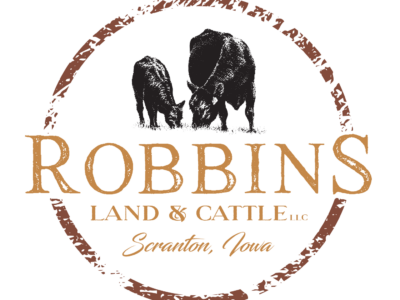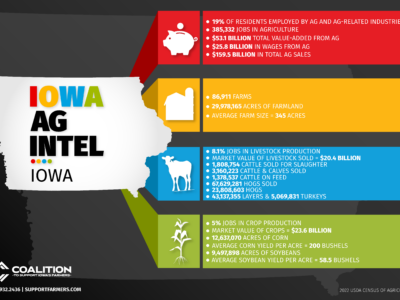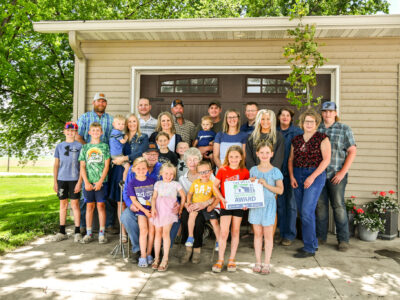Livestock Farmers Urged to be Careful as Nuisance Suits Rise
02-04-2016 in Livestock
Reprinted with permission of the Iowa Farm Bureau Spokesman
By Dirck Steimel
A recent rise in the number of nuisance lawsuits against Iowa livestock farms means farmers need to redouble their efforts to place their barns on suitable sites, work hard to minimize odors, establish good relations with neighbors and take other steps to help reduce the potential of being sued, a leading livestock attorney said last week.
“There are a number steps that you can consider to help you avoid a lawsuit,” Eldon McAfee, an attorney with Brick Gentry law firm, told farmers during a seminar at the Iowa Pork Congress in Des Moines. “There are no silver bullets and you can do everything right and still get sued. Further, not all of the steps apply to every farm. But I think you have a better chance if you are proactive.”
After a six-year period in which no nuisance lawsuits reached trial in Iowa, the legal climate appears to be shifting, said McAfee, who has been representing Iowa livestock farmers for more than two decades.
One nuisance suit was tried in a Poweshiek County courtroom in 2015, several others are scheduled for trial in 2016 and 2017, and there are others have been filed but have not yet been scheduled for trial, he said.
“We have as many nuisance cases now pending in Iowa as we have had at any one time,” said McAfee. “It’s safe to say it’s going to be a pretty active year.”
Court records show that nearly all of the plaintiffs in nuisance lawsuits in Iowa are represented by the Kansas City-based Speer Law Firm along with the David E. Sykes law firm in Fairfield, with Richard Middleton of Savannah, Georgia as co-counsel for the plaintiffs in those cases scheduled for trial in 2016.
Most of the lawsuits filed to date contend that odors from a livestock barn are unreasonably interfering with a neighbor’s enjoyment of his or her property, or that the barn has reduced the property values. In some cases, the plaintiffs in the lawsuits are two miles or more away from the barn, yet they claim it is causing a nuisance.
With the increased number of lawsuits, McAfee urged livestock farmers to work with the Coalition to Support Iowa’s Farmers (CSIF). The coalition, formed more than a decade ago by the Iowa Farm Bureau Federation and other Iowa farm organizations, is to help livestock farmers successfully and responsibly manage changes in their operations. CSIF (which can be reached at www.supportfarmers.com or by calling 800-932-2436 ) helps farmers navigate the maze of state and federal regulations, provides a building site analysis, helps farmers safeguard the environment and enhance relations with their neighbors.
Locating a barn in the right place is a critical part of raising livestock today, McAfee said. “Even though some of the plaintiffs in the lawsuits are more than two miles away, you are much better off if you have adequate separation distances.”
It’s also important to determine the prevailing winds in the area, the attorney said. “Long-range research shows that Iowa summer winds tend to come from the south, to the south-southeast” McAfee said.
Planting trees is another way that farmers can enhance neighbor relations and reduce the potential for lawsuits, McAfee said. The Green Farmstead Partner program operated by CSIF is an excellent way that farmers can get information and technical assistance in planting trees around livestock barns to reduce odors and provide visual screening.
McAfee also emphasized the importance of the proper handling of livestock mortalities on the farm, which may increase odor concerns. In addition, the attorney said that keeping animals clean and the farmstead orderly can help stem odors and reduce neighbor concerns.
Keeping communications open with neighbors is essential, McAfee said. That means letting neighbors know early about your plans to build a barn or expand your livestock operation, and keeping them current on other changes, he said.
“I know that’s not always easy and you might have some neighbors that just don’t want to listen,” McAfee said. “But in most cases you should try to communicate with them.”
Finally, the livestock attorney urged farmers to do periodic self audits of their farms to determine if all of their environmental processes are up-to-date and working. “It’s a continual improvement process that keeps making us better,” he said.
The Coalition to Support Iowa’s Farmers is a collaborative effort involving the Iowa Cattlemen’s Association, Iowa Corn Growers Association, Iowa Egg Council, Iowa Farm Bureau Federation, Iowa Pork Producers Association, Iowa Soybean Association, Iowa Turkey Federation and Midwest Dairy Association.
Recommended News

Robbins Family Hosts Cattle Building Open House
Farmers interested in learning about the benefits of raising cattle under roof are invited to attend an open house at the Robbins family farm to tour Justin and Lacie Robbins...
Read More
NEW STUDY SHOWS IOWA AGRICULTURE EVEN STRONGER
Iowa’s 86,911 family farms continue to be a key driver of Iowa’s economy, contributing 32 percent more to the state economy than in 2017, according to a new study commissioned...
Read More
Farming is a Family Affair
The Streit family of West Bend, Iowa, has cultivated their farm for over three decades, fostering a legacy of hard work and community support. Diane and Tony Streit, alongside their...
Read More